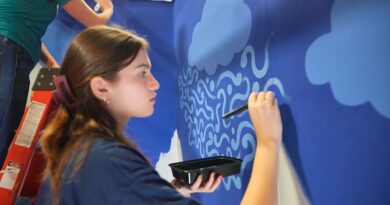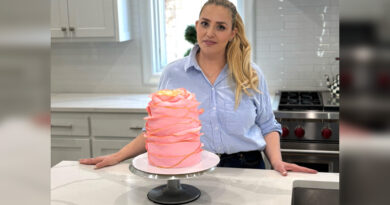Hillcrest Program Gives Students Lab Experience
While many of their classmates are going to the mall or playing video games, a handful of Hillcrest students are spending their Saturdays researching complex sequences of enzymes and proteins.
The school’s biomedical research program helps its participants gain real-world experience in a lab at UT Southwestern Medical Center, where their hands-on work with embryos and stem cells could play a small role in helping to find treatments for pancreatic cancer and Type 1 diabetes.
Dr. Ward Coats, who has taught chemistry and physics at Hillcrest for 17 years, earned his doctorate degree from UT Southwestern and has brought students to the lab of molecular biologist Dr. Raymond MacDonald since 2006, when a few students expressed interest.
The biomedical research program launched the next year, when Coats received a grant from the National Institute of Health. It’s grown steadily since, and now includes about 25 students.
“It’s definitely one of the best teaching opportunities I’ve had,” Coats said. “This is real science and real research.”
The club meets every Wednesday morning at the school, with more advanced students — mostly juniors and seniors — invited to attend the Saturday lab sessions.
The bulk of the student work contributes to a poster presentation each spring at the annual conference of the American Society of Biochemistry and Molecular Biology. This year, the group will travel to Boston for five days in late March, where it has an opportunity to interact with thousands of scientists from around the world.
“I really like science and I like how it plays a small role in everything that we do,” said Hillcrest senior KK Pedigo, who serves as the club president and hopes to study engineering in college. “It’s made me realize that even the small things that we do are significant.”
In the past seven years, the program has received several more grants to help offset costs. It also has built up an extensive network of parent support that helps raise funds through an annual pajama sale and other means.
Coats said the partnership with the lab allows students a unique opportunity to explore medical science outside the classroom.
“We’ve had freshmen who didn’t even know what a pipette is,” Coats said. “By the time they’re a senior, their eyes are wide open and they’re confident. It’s great to see that progression.”








